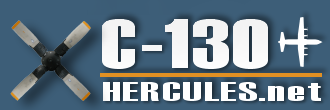
howell fe
-
Posts
16 -
Joined
-
Last visited
Never
Content Type
Profiles
Forums
Store
Gallery
Downloads
Calendar
C-130 Hercules News
Posts posted by howell fe
-
-
I almost forgot, this is a website that has been around since the '90's: http://www.baseops.net/c130pilotgouge.html I would print all of the systems "gouge" and put it in a binder. Again, this only serves to complement the Technical Manuals, but it will be a great help to you getting started. The electrical system diagrams and memory aids were especially useful when I started out.
I noticed that there is a note at the top reminding new pilots that there is a "pre-test" upon arrival to C-130 training. There must be a study program that they are expected to complete prior to arrival. Talk to your leadership, I'm sure they can coordinate for you to get access to the same study materials. Or, just buddy-up with a new pilot or flight engineer, I'm sure they'll be happy to loan their copy to you after completing the course.
Definitely take "pjvr99's" advice. Observe: engine changes, propeller changes, throttle rigging, TD Amp change/test, tire/brake change, get a headset and sit in on every engine run available and follow along on the checklist. Have an instructor loadmaster give you a "tour" of the back-end of the aircraft (that alone could take an entire morning). Go to the ISO/Phase hangar for an entire week and shadow all of the checks, tests, and time change items they complete. Use your Iphone to take pictures and notes of everything you observe (security policy permitting). If you have to work 2nd or 3rd shifts to see everything, then so be it. It will not go unrecognized that you're making the effort (not to mention the advantage of meeting all personnel as quickly as possible).
Sorry to sound chauvinistic, I think you'll find maintenance and aircrew alike to be very welcoming to a female aeronautical engineer who's genuinely interested in their work. Remember to always ask them how you can make their job easier, safer, etc. to include newer or better designed support equipment. I presume that's your job, so always be looking out for opportunities to make their life better.
-
For the first few days of ground school pilots at Little Rock AFB were issued a cd-rom (I'm dating myself, circa 1998) with 15 minute lesson blocks on each aircraft system. The program was interactive (ex. click on a hydraulic valve and it opened, etc.). For the visual learners, like most of us, it was an excellent complement to the technical manual. Talk to newly trained C-130 pilots to see if they can get you access to whatever the current version of this computer-based training.
-
Fwiw, tachometer tester for .1% accuracy is H391T-56-1 http://howellinst.com/pdf/Portable-Engine-Test-Sets/H391T-56-1%20Brochure.pdf
-
Thanks NATOPS1. Any chance "pre-1974" Lockheed periodicals are available too?
-
Does anyone have a copy (or link) of the TD System article that was featured in a Lockheed Martin Service News article many years ago. I can't seem to track it down using a google search. Thanks
-
Thanks!
-
How about the EC-130 unit at DM?
-
Are there any US active, guard, or reserve units still flying E model Herks still?...sorry if this has already been answered.
-
Focus on something that might save the Belgian Air Force money if you want max support from the people who can help you with data. How about, survey maintainers about what the most difficult/time consuming tasks are in their Job Guides. And then, take their inputs on how they can improve the processes (better written T.O. manuals, better support equipment, design changes, etc).
Another idea: Survey maintainers on what is their least favorite piece of support equipment (based on complexity, effectiveness, reliability, etc.) Take their inputs on how to improve it and analyze for feasibility. The secondary upside to this approach, if you do a good enough job, you can use your thesis as part of your job application package to get hired by industry...Good Luck.
-
Is it a GTCP85-180L? Run the H296G APU tester on it, should pinpoint the problem(http://www.howellinst.com/H296B.htm).
-
Do the AE2100 and AE1107C have the same type of turbine section thermocouple?
Anyone have the NSN's for either t/c?
-
My USAF experience: 5 halon 1211 (BCF) fire extinguishers:1 on the flight deck (245 bulkhead) and 4 in the cargo compartment: one on aft 245 bulkhead, 2 on right side (aft of wing), and 1 forward of portside paratroop door.
125 +/-50 psi
-
Are you using the Accutach RPM reader or the 391 TAKCAL to isolate the RPM indicator?
accutach: http://www.wbparts.com/rfq/6680-01-412-5769.html
-
Has anyone used the new H296 APU test set for trimming C-130 GTC/APU's?
Is it good, bad, or no added value to older tester?
-
Thank you gentlemen, We are fielding a RFQ for a new APU test set. Greatly appreciate your help!.
Anyone aware of the APU model on the Canadian CP-140?...It's made by Lockheed as well, so I presume it is also equipped with the gtcp85-180L

POWER RECUPERATION ON COMPRESSOR
in C-130 Technical
Posted
Little Rock RR office: 501 986 4869. Can probably put you in touch with your regional rep.